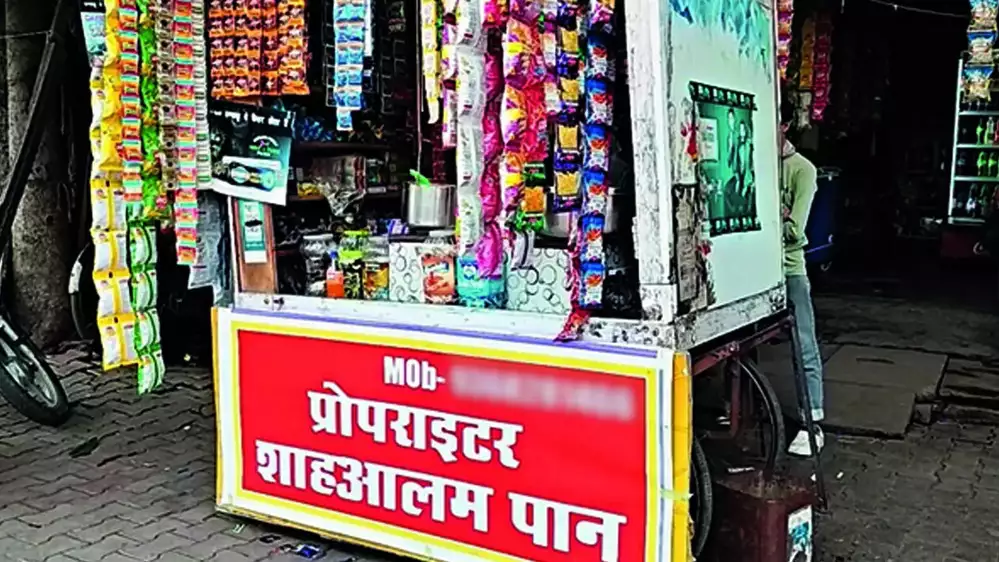Kanwarias are Shiv worshippers who go to Gangotri and Haridwar to fetch Ganga water to take home to their local Shiv temples. This pilgrimage has been growing in popularity over the years and now attracts as many as 12 million kanwarias.
This year, along with the annual blocking of several roads, the Uttar Pradesh govt has issued a directive to all shopkeepers on the kanwaria routes to paste their names on their shops. The aim, a police officer explained, was to “avoid any confusion” in the minds of kanwariyas.
And what is the supposed confusion? The govt worries that kanwariyas might unknowingly eat at a Muslim-owned shop. This, apparently, is so frightful a prospect for pilgrims that every shop must be forced to display names in order to reveal Muslim owners. Shops that fail to do so can be shut down. Given the state govt’s past records with bulldozer demolitions, this is no idle threat.
The Constitution says India is a state where no discrimination is warranted on the basis of religion, caste, gender, or place of birth. It also guarantees the right of any Indian to start a business anywhere. The Hindu seers of Haridwar have huge political clout but never before has the state govt formulated a rule making pariahs of non-Hindus running shops along hundreds of kilometres of kanwaria routes.
The notion that any religious group has proprietary rights over business seems absurd.
I dislike exaggerated liberal accusations that the BJP is Hitlerian. Yet, I must agree with liberal friends that the latest UP directive has unfortunate similarities with the marking of Jewish shops that led to the infamous ‘Kristallnacht’ of November 9, 1938, when Nazi vigilantes attacked Jewish shops across Germany, smashing shop windows and looting the contents. This was the beginning of Hitler’s Final Solution.
Once every shop in UP is identified by religion, it can become a pariah and marker for vigilante attacks.
Swami Yashveer, head of Baghra Ashram, Muzaffarnagar, says that Muslims who use Hindu names or the names and photos of Hindu gods for their shops are trying to mislead consumers. He has held a press conference, warning all Muslim shopkeepers to obey the new directive or else face consequences.
He says if the state govt does not act within seven days against those failing to paste their names, then he and his followers will make sure that such shops are shut. He further declared that such action was needed not just during the kanwaria march but permanently.
Such statements and threats are a violation of constitutional norms. In a truly secular state, govts would arrest or at least warn those making such speeches to desist. But in UP, the order has already been implemented and name boards are up at eateries and street vendors.
The notion that any religious group has proprietary rights over business seems absurd.The Himalaya Drug Company, now renamed Himalaya Wellness Company, is a multinational with branches across the world, and is India’s biggest exporter of ayurvedic drugs. It is run by a Muslim family, the Manals. Yusuf Hamied made Cipla famous by providing anti-HIV drugs at one-tenth the price of western multinationals. Another Muslim group, the Khorakiwalas, run Wockhardt, also a top Indian drug company.
Can extremists demand that companies be forced to put the names of their Muslim owners on all their products to “avoid confusion” on the part of Hindus who might suffer religious “pollution” by buying their drugs?
Because of the cachet of Christian missionary schools, India is flooded with schools carrying names like St John’s School or Mother Mary Convent School. Many of these are owned by Hindus. Should they all be forced to close down because they may mislead Christians — or for that matter Hindus — into thinking they are Christian-run?
Muslims hold processions on Moharram. Should all Hindu shop-owners on a Moharram route be forced to paste their names on shops “to avoid confusion?” Should similar rules apply to a Christian procession on Easter?
BJP’s slogan is ‘Sabka Saath, Sabka Vikas, Sabka Vishwas’. Let this slogan also apply to all religious processions.


